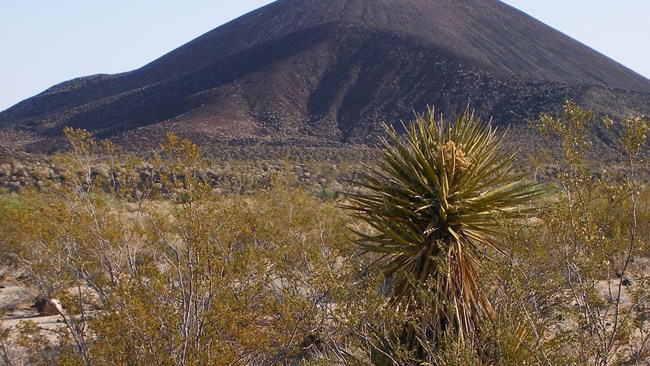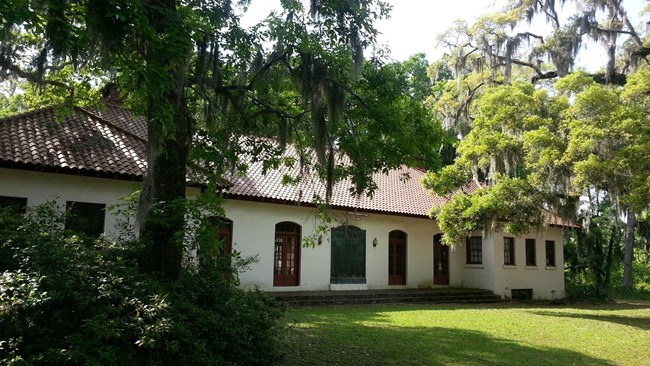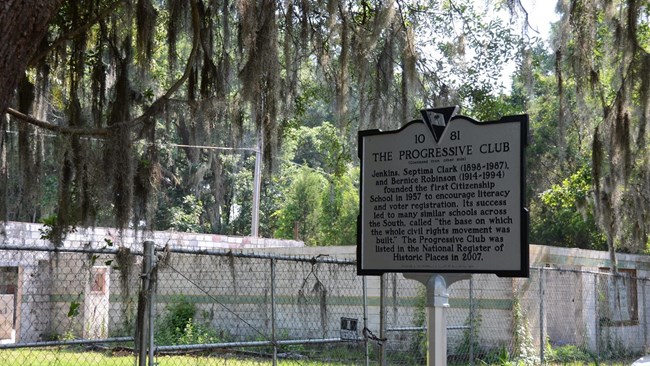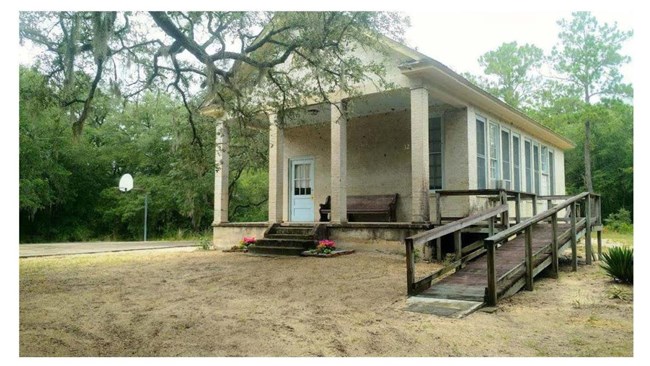News Release
Date: September 23, 2021
Contact: NewsMedia@nps.gov
WASHINGTON – The National Park Service announced the addition of four new sites from California and South Carolina to the African American Civil Rights Network (AACRN). This addition further strengthens the connection between public and private organizations to honor and preserve the people and stories of the civil rights movement and educate the public about its diverse and complex stories.
“The African American Civil Rights Network is a unique preservation program that brings together both tangible and intangible resources to tell a more complete narrative of the civil rights movement in America,” said NPS Deputy Director Shawn Benge. “We welcome and encourage prospective members to submit applications to join this growing network of culturally significant resources.”
The NPS has added 25 resources to this growing network just this year. Applications are accepted on a rolling basis from individuals and organizations associated with the African American civil rights movement. Details about the application and review process are available online.
Discover the New Network Members

NPS photo
California
Mojave National Preserve Lanfair Settlement Archive
When the eastern Mojave Desert was opened to homesteading in 1910, Lanfair Valley became the focus of a visionary group of African American entrepreneurs and clergy in Los Angeles who were determined to establish agricultural and mining colonies in this desert settlement. Represented in the remains of these homesteads are the stories of the men, women, and children, friends and family, who came to Lanfair Valley to escape oppression and bigotry, and to claim land that with work could become land of their own.

Image courtesy of the Penn Center
South Carolina
The Penn School, founded in 1862 established a commitment to Black education, community welfare, and cultural heritage that has remained strong for over 150 years. Penn School functioned as an educational institution, health clinic, farm bureau, catalyst for community action, and a repository for preserving St. Helena Island’s unique Gullah heritage and written history. Although the school closed in 1948, Penn Community Services, Inc. was organized in 1951. Under the direction of devout Quakers, Courtney and Elizabeth Siceloff, Penn Center became a major facilitator for civil rights and social justice activism. Movement leaders such as Dr. Martin Luther King Jr., Septima P. Clark and Dorothy Cotton congregated within the space, often collaborating with the Southern Christian Leadership Conference.

Image courtesy of the Preservation Society of Charleston
The Progressive Club of Johns Island
The Progressive Club Sea Island Center on Johns Island, South Carolina played an important role in the Civil Rights Movement, as it was the site for the development of continued adult education, social history, politics, ethnic heritage, recreation, & commerce for the African American community of the Sea Islands. The structure served as a community center, home for the club’s legal and financial assistance programs, adult education program, dormitory lodging, and as a community recreational facility, child care center, meeting place and grocery store.

Photograph by Haley Yarborough, courtesy of the South Carolina State Historic Preservation Office
The Sandy Island School served as the central location for the islander community’s activism for political representation and cultural preservation. The school embodies the self-sufficiency of the Sandy Island community in the face of unequal and scarce educational resources for African Americans throughout the twentieth century. Through the islanders’ collective determination and action, students received a quality education in the face of meager resources, enabling them to flourish in their chosen careers off the island.
Connect with the African American Civil Rights Network. The continuing struggle for racial equality is told through a collection of powerful historical resources that commemorate, honor, and interpret lesser-known figures of the civil rights movement. The AACRN is composed of properties, programs, and facilities that reflect the reality of the African American civil rights movement, as African Americans and their allies fought for justice and to end segregation and disenfranchisement across the U.S.
About the National Park Service. More than 20,000 National Park Service employees care for America's 423 national parks and work with communities across the nation to help preserve local history and create close-to-home recreational opportunities. Learn more at www.nps.gov, and on Facebook, Instagram, Twitter, and YouTube.
Last updated: September 23, 2021
